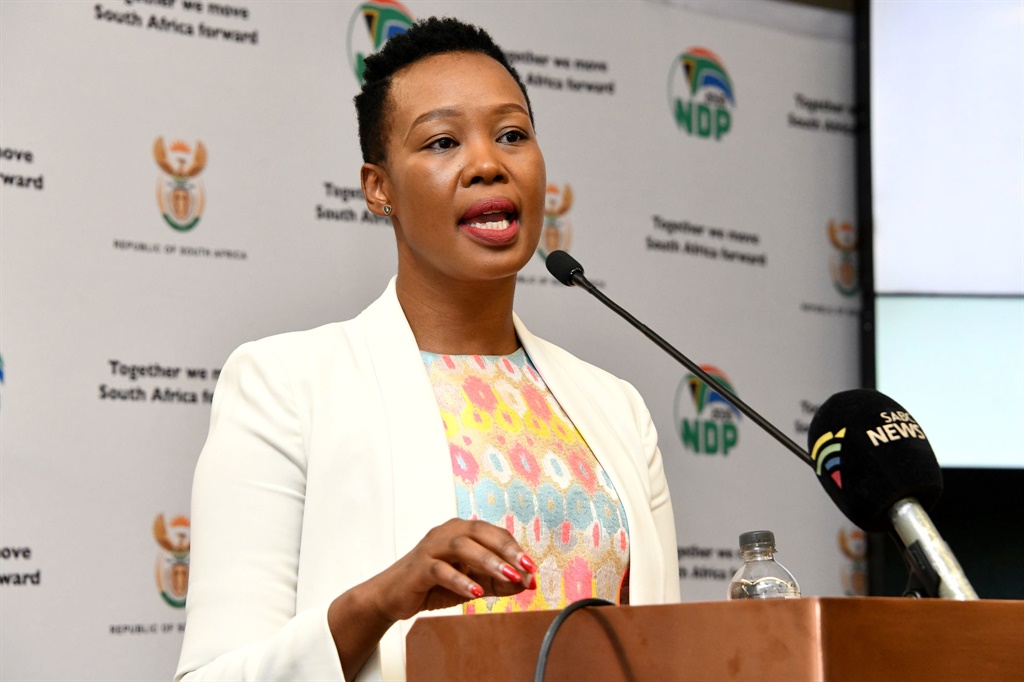
Government is not going to eavesdrop on South Africans’ private cellphone conversations, says Minister of Communications, Telecommunications and Postal Services Stella Ndabeni-Abrahams.
This was her explanation on the level of mobile interception to be used in the fight against the Covid-19 coronavirus outbreak.
“I think people for now, they just get worried that we are going to listen to them. And I think we have not done much awareness on it because people still think that everybody is just going to be geolocated,” Ndabeni-Abrahams told City Press.
She said that geolocation, a technology that shows the geographical place where a person is when using a cellphone, would “only be limited to people who have already tested Covid-19 positive” and not the general public.
“It [geolocation] is only for those that have tested positive because if you do not do it, there is going to be more infections that you could have controlled,” she said.
For example, government must be able to warn the people in say, Alexandra township, Johannesburg – without disclosing the identity of individuals infected – that there are cases of people who are positive [of Covid-19] in your area “so stay indoors, protect yourself and all that”, she said.
For those not tested yet, Ndabeni-Abrahams said, the technology would enable government to warn them that: “You have been around this person, therefore please be tested, so that you can stay safe.”
She said government was optimistic that the more it explained how the technology would work, people would begin to see the need for it.
She said the department of health would keep the database and information extracted through geolocation and it was prepared to protect people’s data.
“Now we have to do something for the country, but it is up to the people to see the need to protect the country or protect individuals.
“As I said, it is not all individuals who will be monitored, it is those who have tested positive [for the virus] that we will look at,” she said.
Asked how long government would keep the data, she said: “The regulations are only valid for the period that we have declared for a national disaster.
“So, if tomorrow President Cyril Ramaphosa says we are doing away with the national disaster [declaration] and we are going back to our normal lives, they cease to exist and the data must be deleted,” Ndabeni-Abrahams said.
Under the regulations gazetted last Thursday, mobile operators are expected to provide location-based services to the authorities to combat the spread of Covid-19.
Ndabeni-Abrahams said that in response to the outbreak, Israel recently passed legislation that enabled operators to provide the information so that they could geolocate people, and that government did it without going to court.
“Our Constitution is different from other countries’, but there are interventions that we need to make. That is why the president called for a social compact, which means that people should not see this as government’s way of wanting to do things, but see it as government trying to help the people of South Africa and the economy to stabilise,” she said.
In December, City Press reported on claims that State Security Minister Ayanda Dlodlo and the agency’s head, Sam Muofhe, butted heads during the outbreak of the xenophobic violence over the legal prescripts for cellphone interceptions in an emergency situation.
Moufhe’s allies told City Press that the source of the friction was an allegedly unlawful instruction from Dlodlo to Muofhe last September when she wanted the planned xenophobic attacks in Johannesburg to be intercepted.
When Muofhe tried to get permission from the designated judge to assist the State Security Agency with the interceptions, he was told there was no judge available. This was because the term of the former Justice HMT Musi had expired “three months ago” and a new judge was yet to be appointed. So the interception could not be authorised.
An insider claimed that Dlodlo was adamant that the interception should go ahead, saying that she did not want “blood on her hands like in Marikana”.
Dlodlo’s allies told City Press then that, under section 7 of the Rica Act, interceptions in an emergency are allowed and the unpredictable xenophobic violence merited the invocation of such powers.
Chrispin Phiri, spokesperson for the department of justice and correctional services, said former judge Musi was designated as the intercepting judge by former minister justice Michael Masutha on August 23 2017 – from September 1 2017 to August 31 last year.
Justice Minister Ronald Lamola designated Judge Bess Nkabinde as the intercepting judge – from September 11 last year to September 10 next year.




 Publications
Publications
 Partners
Partners









